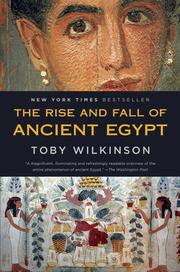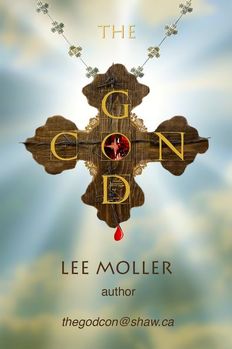 Like many people, I have perused coffee table books on Egypt. The monuments they left behind are amazing, even without any of the back stories. I have read more in-depth books as well. This was the first really detailed scholarly book on the subject I have read. As dry as it sounds, the stories kept my interest, even though we all know the ultimate ending (Egypt died with Cleopatra). It interested me in part because it overlaps propaganda, war, and religion… three hobbies of mine. I was mostly interested in the religious and political aspects of the civilization. The names, of course, are familiar to most. The Scorpion King, Unas, Ramesses, Djoser, Imhotep, Akhenaten, Tut, Thutmose, Hatshepsut. Equally, the place and god names have a mystical importance. Thebes, Karnak (aka Ipetsut), Memphis, Alexandria (place names); and Isis, Horus, Hathor, Aten, Ra, (gods), to name but a few. Often, or perhaps usually, politics and religion were intimately intertwined. There are two major forces in the world that both want the same thing: namely for you to behave the way others think you should. They are religious and political power. On the political front, kings claimed power under the umbrella of religion. They then used religion to control the people, along with the usual political tools: death, war, taxes, propaganda, marriage deals, torture, nepotism and so on. Over the years, the relationship between Pharaoh and god evolved a lot. That evolution was repeated in other religious histories, including modern Christianity. At first, the Pharaoh was merely favored by the gods. They could live forever if they played their temporal cards right. This did not mean being "good". It meant spells, sacrifices of animals, gifts, and elaborate tombs. Later Pharaohs were beloved of a god (the Egyptians had no shortage of them) or actually gods themselves. During the evolution of Egyptian religious thinking, the rank and file got restless. They wondered why they should bust their hump to get Pharaoh into the afterlife when they have no chance at it themselves. Then one day, the powers that be declared that the peons too could go to heaven… but just like Jesus, you could not get their except through the pharaoh. Over the 3,000 years of Egyptian civilization, the land was conquered many times by many peoples with varying religious beliefs. The only thing that bound Egypt together over all that time was their polytheistic religion. Famously, for one generation, Egypt dabbled in monotheism. This did not work, in part because it put too may priests out of work. During the rise of Egypt, written language was invented. But Egyptian writing was approachable by only a few. Words had mystical value. Even Pharaonic names were translatable, such as Ankhesenamun == “she lives for Amun”. Propaganda took the form of both writing and giant reliefs that told a story anyone could read. Often what they said was total bullshit (e.g.: battles fought to a draw were sold as victories by both sides), but the people could not google the facts for thousands of years to come. And when they can, they don’t. If this all sounds familiar, it should. Christianity used Latin to keep itself opaque to the average schmuck for centuries. Instead of giant reliefs to spread bullshit, they used stained glass. At about 500 pages, this is not a short read, but the subject is literally the beginning of the great human experiment: civilization. Perhaps not for everyone, but I really enjoyed it. The author does occasionally relate ancient history to the modern day, but that is mostly left to the reader.
0 Comments
Leave a Reply. |
AuthorLee Moller is a life-long skeptic and atheist and the author of The God Con. Archives
May 2024
Categories
All
|

 RSS Feed
RSS Feed